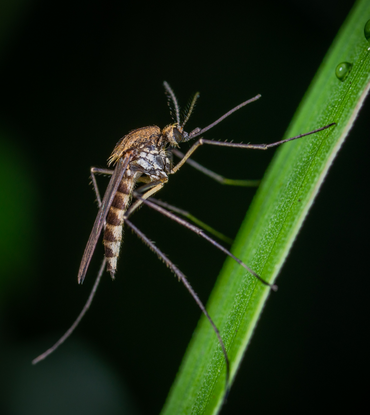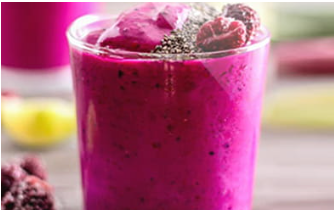Best Homemade Mosquito Repellents: Protecting Your Family and Home Naturally

By: Carl M. Ambrose, Jr.
Having grown up and lived in SWLa.mosquitoes are a part of life, but there are ways to keep those pesky insects at bay. Unfortunately, mosquitoes leave itchy bites and carry harmful diseases like: West Nile, Zika, Chikungunya, and Malaria. While commercial repellents are readily available, they often contain chemicals that may raise concerns about adverse effects. However, you can create effective mosquito repellents using simple ingredients found in your kitchen or garden. This article will explore the best homemade mosquito repellents, including plants known for their natural repelling properties. So get ready to bid farewell to those annoying bloodsuckers while enjoying summer and the wonders of nature.
Many people are turning to natural alternatives with concerns and worry over the potential health risks associated with chemical-based mosquito repellents. Homemade mosquito repellents offer a safe and environmentally friendly solution while keeping your home mosquito-free. You can create repellents that effectively deter mosquitoes by utilizing the power of certain plants and other common household ingredients. Let’s discover the best options available.
Understanding Mosquito Repellents
Before we explore homemade options, it’s essential to understand the different types of mosquito repellents available. Generally, mosquito repellents can be categorized into chemical-based and natural homemade repellents.
Chemical-Based Repellents
Chemical-based repellents often contain ingredients such as DEET, picaridin, or IR3535. While effective, these repellents may raise concerns due to their potential adverse effects on health and the environment. Additionally, some individuals may have sensitivity or allergic reactions to these chemicals.
Natural Homemade Repellents
On the other hand, natural homemade mosquito repellents utilize plant-based ingredients and essential oils known for their mosquito-repelling properties. These alternatives provide a safe and non-toxic option to protect against mosquitoes. Moreover, they are easy to make and often cost-effective.
Benefits of Homemade Mosquito Repellents
Using homemade mosquito repellents offers several advantages over their chemical-based counterparts. Let’s explore the benefits that make these natural alternatives a preferred choice for many:
Cost-Effectiveness
Homemade repellents can save you money in the long run. The ingredients are often readily available at home or easily purchased at affordable prices. So you can protect your family without breaking the bank by making your repellents.
Environmentally Friendly
Chemical-based repellents can harm the environment. On the other hand, homemade repellents utilize natural ingredients that are biodegradable and do not contribute to pollution. Opting for homemade solutions can help preserve the environment for future generations.
Effective Plants for Repelling Mosquitoes
Certain plants are known for their mosquito-repelling properties. You can naturally repel mosquitoes by strategically placing these plants around your home or using their essential oils. Let’s explore some of the most effective plants for this purpose:
Citronella
Citronella is a popular plant when it comes to repelling mosquitoes. Its strong citrus scent masks the odor that attracts mosquitoes, effectively keeping them at bay. In addition, planting citronella in your garden or using citronella candles can create a mosquito-free zone.
Lavender
Not only does lavender add a pleasant aroma to your surroundings, but it also acts as a natural mosquito repellent. The floral scent of lavender is highly effective in repelling mosquitoes. You can plant lavender in your garden or use lavender oil to create a fragrant mosquito-repellent spray.
Peppermint
The pungent aroma of peppermint is disliked by mosquitoes, making it an excellent natural repellent. Planting peppermint in your garden or using peppermint oil in a lotion or spray can effectively repel mosquitoes. Plus, you’ll enjoy the refreshing scent of peppermint in your living spaces.
Lemon Balm
Lemon balm, with its lemony fragrance, is another plant that can keep mosquitoes away. This herb, in the mint family and releases a strong scent that repels mosquitoes. Plant lemon balm near windows or create sachets with dried lemon balm leaves to enjoy a mosquito-free environment.
Simple Homemade Mosquito Repellent Recipes
Now that we know which plants are effective at repelling mosquitoes, let’s explore some simple homemade recipes to create your mosquito repellents:
Citronella Candle
Create your citronella candles by melting candle wax and adding citronella essential oil. Pour the mixture into small containers with candle wicks, and let them solidify. Then, light these candles outdoors to enjoy a mosquito-free evening.
Lavender Oil Spray
Make a fragrant lavender oil spray by combining water and a few drops of essential oil in a spray bottle. Shake well and spray around your living spaces or directly on your skin for a natural and pleasant-smelling repellent.
Peppermint Lotion
Mix peppermint essential oil with carrier oil, such as coconut or almond oil, to create a refreshing and effective mosquito-repellent lotion. Apply the lotion to your exposed skin before heading outdoors for protection against mosquitoes.
Lemon Balm Sachets
Gather dried lemon balm leaves and place them in small cloth sachets. Hang these sachets near windows or doorways to naturally repel mosquitoes. You can also rub the leaves directly onto your skin for added protection.
Tips for Using Homemade Repellents
To make the most of your homemade mosquito repellents, consider the following tips:
-Apply the repellent evenly on exposed skin surfaces for maximum effectiveness.
-Reapply the repellent as needed, especially after sweating or swimming.
-Use mosquito nets over beds and cribs for added protection during sleep.
-Consider burning mosquito-repellent incense or using outdoor fans to create a mosquito-unfriendly environment.
Precautions and Safety Measures
While homemade mosquito repellents are generally safe, it’s essential to take the necessary precautions to ensure their effectiveness and safety:
-Do a patch test before using any homemade repellent to check for potential skin allergies or irritations.
-Avoid applying homemade repellents near the eyes, mouth, or open wounds.
-Keep homemade repellents out of reach of children and pets to prevent ingestion or accidental exposure.
-If you experience any adverse reactions after using a homemade repellent, discontinue use and seek medical advice.
With the best homemade mosquito repellents, you can naturally protect your home and loved ones from pesky mosquitoes. You can create effective and safe repellents by utilizing the power of plants and simple household ingredients. So say goodbye to chemical-based products and embrace the wonders of nature while keeping those annoying bloodsuckers away. Hey, if you have any other methods,drop them in the comments and have a mosquito-free summer.
FAQs
1. Are homemade mosquito repellents effective?
Yes, homemade mosquito repellents can be effective in repelling mosquitoes. However, their effectiveness may vary based on the specific ingredients, concentration, and application.
2. How often should homemade repellents be applied?
It’s recommended to reapply homemade mosquito repellents every few hours, especially if you’re sweating or in an area with high mosquito activity.
3. Can I use multiple homemade repellents together?
Yes, you can combine different homemade repellents to enhance their effectiveness. However, testing each repellent on a small skin area before applying them together is essential to ensure no adverse reactions occur.
4. Are homemade repellents safe for children and pets?
Homemade mosquito repellents can be safe for children and pets. Still, using child-safe ingredients and following age-appropriate application methods is crucial. Consult with a healthcare professional or veterinarian for specific guidance.
5. How long do homemade repellents last?
The duration of protection provided by homemade repellents varies depending on the ingredients used and environmental conditions. It’s generally recommended to reapply every few hours for continuous protection.
About the Author:
Carl M. Ambrose, Jr. was born in SWLa. and has a comprehensive background in various aspects of media, encompassing radio, television, and online platforms. He is a contributor publications such as swlajournal.com and Everythinglakecharles.com. With his expertise and passion for the industry, Carl has established himself as a sought-after guest on podcasts, radio shows, and television programs. Through his extensive knowledge and captivating presence, he consistently provides insightful commentary and analysis to his audience.
Tasty juice “eats through” 62lbs of thick flab



